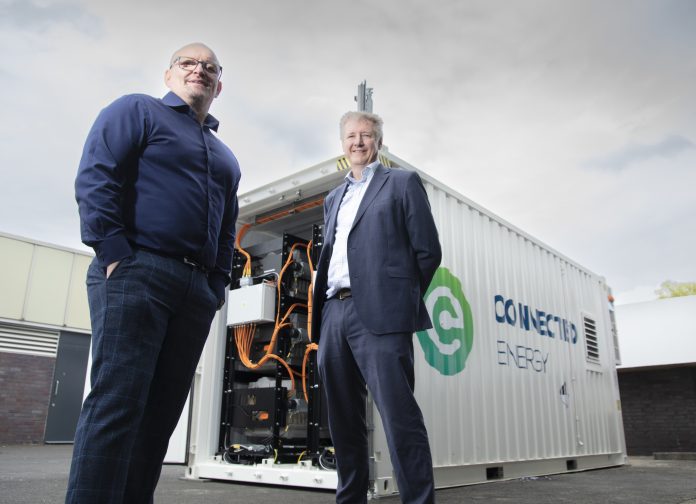Old electric vehicle batteries are to be used to store solar-powered energy to fuel a fleet of new EVs at North Tyneside Council’s revamped Killingworth depot.
The facility – at which about 1,000 council employees work – now includes a solar PV array and car ports delivering 700 kilowatts at peak generating around 600,000kW/h of electricity each year.
North Tyneside Council plans to install more than 40 EV chargers in the coming months, a figure which will increase as the authority transitions a significant part of its fleet to electric over the next few years.
However, realising it would be giving 15% of the solar energy it generated back to the grid, as it had no way of storing the excess energy created during daylight hours, the council turned to Connected Energy in an effort to use this excess electricity to charge its electric vans at night.
Connected Energy has developed a battery energy storage system (BESS) called E-Stor which uses batteries from end-of-life electric vans, giving them a second life.
Ian Lillie, strategic facilities manager for North Tyneside Council, with responsibility for the depot, said, “Since installing and commissioning the PV array in February 2023 we have already generated over 100,000kW of green energy. However, we’ve had to give back over 20,000kW to the grid because we can’t store it.
“By using Connected Energy’s battery energy storage system, we can capture that energy and use it to charge our electric vans and indeed the buildings on site overnight.
“And in the winter, we can use E-Stor to store energy from the grid on lower tariffs at night, to use during the day.
“The combination of solar and BESS should significantly reduce our electricity bills while also cutting carbon emissions from our energy consumption.”




